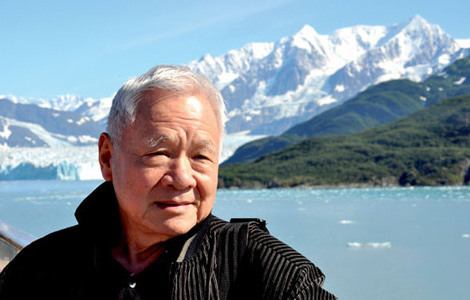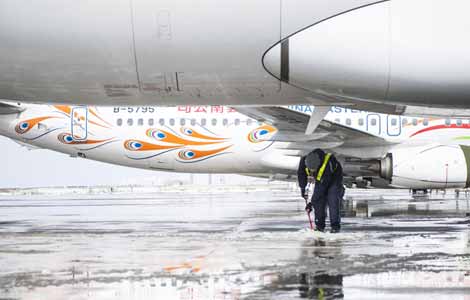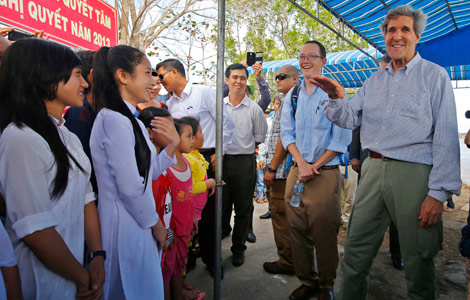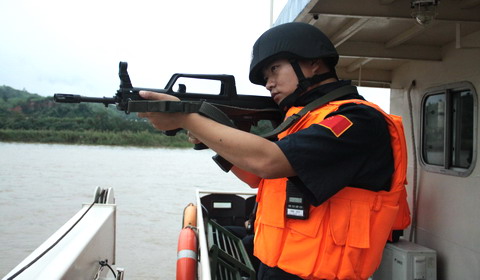Chinese FM outlines diplomatic priorities for 2014
Updated: 2013-12-17 05:08
(Xinhua)
|
||||||||
BEIJING, Dec. 16 (Xinhua) -- Chinese Foreign Minister Wang Yi on Monday outlined China's diplomatic priorities for 2014, including enhanced ties with major powers and closer relations with neighbors.New-type relationship with big powers
"China will further build a framework for its relationships with big powers, which should feature positive interactions and healthy development," Wang said at a forum on China's diplomacy in 2013.
He hailed China's diplomatic ties with the other major powers this year, including the upgraded comprehensive strategic partnership with Russia and the under-construction new-type relationship with the United States.
"China will build a new type of relationship with the United States with increased results of cooperation, and expand cooperation with Russia in various fields," Wang said.
China will also coordinate development strategies with the European Union and enhance cooperation with other developing powers, Wang noted.
"China has determined to build a new-type relationship with the other major powers to twist the so-called fate of conflict between emerging powers and the existing ones," said Ruan Zongze, vice chairman of China Foundation for International Studies.
The vision of such a new-type relationship "is not utopian", said Ye Zhicheng, a professor of international relations at the Beijing University."The current China-Russia ties has been a successful pilot model."
Neighboring situation most complicated
On China's relationship with its neighbors, Wang said China will consolidate friendship with those countries and establish a "fate community".
Wang said China will insist on the denuclearization of the Korean Peninsula and strive for the resumption of the six-party talks on the peninsula's nuclear issue.
China will safeguard its national sovereignty and dignity while striving to settle territorial and maritime disputes with neighboring countries via dialogue, he said.
China will also promote Afghanistan's political reconciliation and economic reconstruction, Wang noted.
"China's surrounding situation is at its most complicated period," Ruan said, labelling such complexity as China's "growing pains".
"Singular policy will no longer work for all issues as China's connection with the outside world has been so complicated and various interests overlapped so profoundly," Ruan said.
Japan's proactive policies, especially its activities on the Diaoyu Island in the East China Sea, are regarded by some as one of the reasons behind the complicated situation.
"Japan has kept blaming China for changing the so-called status quo over the Diaoyu Islands. However, what's the actual status quo? The status quo is that Japan does not own the sovereignty of those Islands and did not even when the United States handed over their administration to Japan in 1972 without China's consent," said Yang Xiyu, a researcher with the China Institute of International Studies.
"The actual status quo is that former leaders of China and Japan agreed to shelve this dispute when they agreed to normalize bilateral relations in 1972," Yang said, blaming Japan for its decision to nationalize the islands in 2012 "changing" the status quo.
China hopes for dialogue and communication with Japan to settle disputes, said Gao Hong, deputy director of the Institute of Japanese Studies of the Chinese Academy of Social Sciences. "However, the Japanese side should show some sincerity."NEW SILK ROAD TO BOOST TRADE
New Silk Road to boost trade
Wang stressed the country's traditional friendship with other developing countries, noting that China will expand cooperation with Africa, implement its aid commitments and push for new breakthroughs in trade and economic ties with Africa.
China will also enhance cooperation with Arab countries and Latin America, Wang said, vowing to struggle for justice and preserve the interests of developing countries.
He highlighted China's strategy for a Silk Road economic zone and the 21st Century Maritime Silk Road, noting China will strive for an "early harvest" in those efforts.
Wang also pledged to promote multilateral and bilateral free trade talks, including finishing talks with the Republic of Korea (ROK) and Australia at an early date, upgrading its FTA with the Association of Southeast Asian Nations and pushing forward the China-ROK-Japan FTA talks.
"China will face the member states of the Trans-Pacific Partnership talks with an open attitude, as well as other regional or cross-region FTA initiatives," Wang said.
 Russia to bail out Ukraine for $15 billion
Russia to bail out Ukraine for $15 billion
 Fatal tiger attack 'points to flaws in zoo management'
Fatal tiger attack 'points to flaws in zoo management'
 Merkel sworn in as chancellor for a third term
Merkel sworn in as chancellor for a third term
 Life in poetry
Life in poetry
 US first lady visits children in medical center
US first lady visits children in medical center
 Harvard reopens after bomb scare
Harvard reopens after bomb scare
 Snowstorms cause chaos for travelers in Yunnan
Snowstorms cause chaos for travelers in Yunnan
 Kerry offers Hanoi aid in maritime dispute
Kerry offers Hanoi aid in maritime dispute
Most Viewed
Editor's Picks

|

|

|

|

|

|
Today's Top News
Vast deposits of 'flammable ice' found
Russia to bail out Ukraine for $15 billion
System for organ donors test
Luxury market cooling down
Court to issue guide on private loan cases
US budget deal clears crucial vote in Senate
Japan seeks bigger role for military
Hukou reforms target 2020: official
US Weekly

|

|







